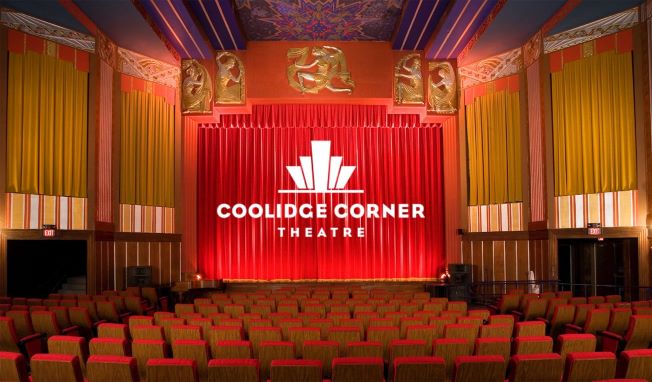Amazon is in talks to buy AMC Theaters, whose business model was jeopardized by the coronavirus pandemic. Other streaming companies, such as Disney and Netflix, are interested in controlling physical venues to expand their market share and limit competitors’ access to their potential audiences.
Last weekend, the Daily Mail reported on rumors that Amazon is in talks to buy AMC Theaters, the largest movie chain theater in the world, with over 8,000 screens in the United States alone. Last year, Trump Department of Justice Antitrust chief Makan Delrahim paved the way for such an acquisition by unilaterally rescinding an important consent decree that structures the film industry, a 1948 resolution to long-standing antitrust claims against movie studios called the Paramount decrees.
The Paramount decrees basically impose a structural separation in the film exhibition business, making it hard for movie studios to buy or control theater chains or distribution.
As I’ve written, prior to these decrees, Hollywood was structured in what was known as the Studio System, in which a small number of vertically integrated studio chiefs essentially decided what artists could make and what Americans could watch, through either direct ownership of theaters or the use of must-have blockbuster content to control theaters.
The decrees broke apart this system, and created an open market for film, leading to a creative explosion and more freedom for artists, most notably the “New Hollywood” of the 1960s.
The Paramount decrees imposed a structural separation in the film exhibition business, making it hard for movie studios to buy or control theater chains or distribution. It created an open market for film and lead to the creative explosion of the “New Hollywood” of the 1960s .
The stated reason Delrahim is ending this decree is that he thinks technology makes it irrelevant. Online streaming introduces a new competitive channel, so who cares if studios can buy theaters?
Rescinding the Paramount decrees opened the door to speculation Amazon, or perhaps Disney, would be buying a movie chain.
Before the pandemic, independent theaters protested the attempt to rescind the decree, writing in a brief that “if the Paramount decrees continue to be respected, the entry of behemoths like Amazon into the exhibition business would more likely be on terms that deterred Amazon from abusing its market power either to favor its own cinemas with its content or to punish fairly competing exhibitors.”

This is not to say that the existing setup, even before the pandemic, was a healthy open market. It wasn’t.
Since the 1990s, there has been a massive roll-up of the movie exhibition business into a few poorly managed and highly indebted movie chains, one of them being AMC.
The AMC theater experience was bad, with overpriced food, inflexible scheduling, and a bland corporatized feel. Movies have increasingly needed to launch on thousands of screens at once, leading to the dominance of Marvel movies.
AMC Theaters itself is loaded up with $5 billion debt and owned by public shareholders, the Chinese conglomerate the Wanda Group, and private equity firm Silver Lake Partners.
With the pandemic shutting down its business, AMC stock is worth around $500 million in total. The corporation was able to issue some bonds recently in the Fed-supported bond market, as well as cut its workforce and avoid rent payments. It has enough cash to stay alive until after Thanksgiving.
Proponents of Amazon buying AMC Theaters have stars in their eyes at the possibility of the integration between Amazon and the chain. They surmise Amazon could make magic, doing special events for Prime members, using the theaters as retail pickup points, upgrading the food, and organizing eSports events with its Twitch service.
They also imagine Disney might do something similar if it bought a chain, turning a theater a chain into a mix of Disney event space, theatrical release venue, and Disney store.

Much of the value here is what AMC Theaters offers as a channel for content. My favorite analyst of the industry is the Entertainment Industry Strategy Guy, and he notes that a TV channel’s ability to launch buzzy new shows is a meaningful way to understand its power. And in terms of market share, Netflix, despite its heavy presence in streaming, basically has the same power for its original content as a broadcast channel.
Amazon is even weaker. It’s basically just a cable channel, despite the billions spent on original content. The purchase of a movie theater chain immediately changes this dynamic, and elevates Amazon into a major studio, able to launch buzzy shows and movies far more easily.
AMC will cost roughly $5-7B, and that’s an easy lift for Amazon financially, though not for a Disney whose critical theme park division is shut down. But while there’s obvious logic for Amazon and Disney to buy theater chains, I don’t think they have to make a purchase right now.
The contours of the pandemic are not clear, so an acquisition would be taking a multi-billion dollar guess on when and whether we will be going out to movies again. Waiting lets potential buyers understand the value proposition more clearly.
Moreover, while the debt offering helped, AMC’s debt and equity holders have a weaker bargaining position every day the pandemic goes on and keeps customers out of theaters. Time is on the side of the buyers.
The possible counter-argument here is antitrust enforcement. Any purchase of a theater by a studio would allow them to block competitors from doing theatrical releases, and put huge amounts of pressure on other theater chains; it would be virtually impossible to negotiate with Disney to get their latest movies if they have their own theatrical distribution channel.
If Disney/Amazon thinks Biden will win and take a harder-edged approach to merger policy, they might try to get this purchase in under the wire.
In terms of market share, Netflix, despite its heavy presence in streaming, basically has the same power for its original content as a broadcast channel. Amazon is even weaker.
Regardless, the question of consolidation in entertainment is now front and center, and there’s no avoiding it. Before the Amazon-AMC rumor started, telecom and media analyst Michael Nathanson came out with a report titled Say Goodbye to Hollywood on what Hollywood will look like after the crisis.
These kinds of reports are supposed to gin up mergers and acquisitions activity and help the investment banking and management consulting worlds figure out how to structure industries. The Amazon-AMC merger rumor is just such activity.
Nathanson, whose firm has its roots in the management consulting and investment banking world, assumes the policy choices will continue to enable consolidation. He then applies the pro-concentration frame to the pandemic. The number of movie theaters will decline due to social distancing needs, and that the “top streaming platforms—Netflix, Amazon and Disney—will emerge with the lion’s share of scripted content creation.”
The other studios, he argues, which include Sony, Paramount, Universal, MGM, and Lionsgate, will “likely need to consolidate to increase selling clout and accelerate cost savings.” He analogizes this dynamic to what “occurred in the recorded music industry over time as six once-mighty global recorded music companies merged into three healthier ones.” The potential acquisition of a theater chain would accelerate this consolidation.
To be clear, cost savings is code for crushing the wages of the artists and workers in the industry. And which movies are likely to prevail after this is all said and done? “It is the small- to medium-sized budget movies that we worry about,” he writes. “We have already seen the share of movies that generate under $100 million at the domestic box office fall from 52 percent in 2010 to 39 percent in 2019, and we expect this trend to accelerate further. Mid-budget, non-tentpoles will not be worth the cost and expense of traditional theatrical distribution.”
These are precisely the kinds of movies that are most likely to be unique to American culture, comedies, as well as the kinds of movies that could be critical of the Chinese government because they don’t need to break into that market.

Now, the possibility of Amazon or Disney running theater chains can sound tantalizing. Who doesn’t want better food in a theater and a more interesting experience? The thing is, a conversation in which people eagerly drool at the prospect of Amazon or Disney theaters is one in which they artificially bound their thinking to assume only monopolistic corporations can provide a good product.
There is no actual reason AMC couldn’t vastly improve its own theaters, either with their own innovations or through a contract with Disney or Amazon on eSports or Disney Stores. It is possible to have well-managed businesses without selling to monopolies.
In fact, some theaters do this on their own, they just don’t get noticed because they are small and below the radar. Independent theaters are just such an experience. These kinds of theaters often do interesting community events, even during the pandemic.
Take The Coolidge Corner Theatre in Boston. It has “a virtual screening room, with some drawing hundreds of people in the opening week. It has also been able to expand its virtual seminars, in which a film expert gathers to lead a discussion on a certain film or filmmaker. Typically, capacity for those discussions, held in one of the Coolidge’s 45-seat theaters, was limited. But with Zoom, the Coolidge welcomed hundreds of paying guests last month, from as far away as Peru.”
Similarly, the Somerville Theater does “weekly “pop up,” selling popcorn, soda, and candy at the theater every Saturday.” These small theaters, having avoided the corporate bland route of AMC-sameness, create value as community centers. We’ve made a political choice to support, at least temporarily, both models.
AMC is drawing on Fed support in the bond market; some of these community theaters are using the Paycheck Protection Program to stay alive.
Implicit in the possibility of movie theaters as community centers is the need for the government to ensure these theaters can get access to financing and movies from studios. In other words, letting Disney or Amazon buy out a hollow AMC is probably a bad idea
Implicit in the possibility of movie theaters as community centers is the need for the government to ensure these theaters can get access to financing and movies from studios. In other words, letting Disney or Amazon buy out a hollow AMC is probably a bad idea. And finding a way to expand independent theaters and open markets in content is what policymakers should be doing during this pandemic intermission. “We could come back stronger than before,” said one independent theater official. “We just have to make it through this intermission.”
Matt Stoller is the author of Goliath: The Hundred Year War Between Monopoly Power and Democracy and Director of Research at the newly-founded American Economic Liberties Project. This column originally appeared in BIG, Stoller’s newsletter on the politics of monopoly. You can subscribe here.






